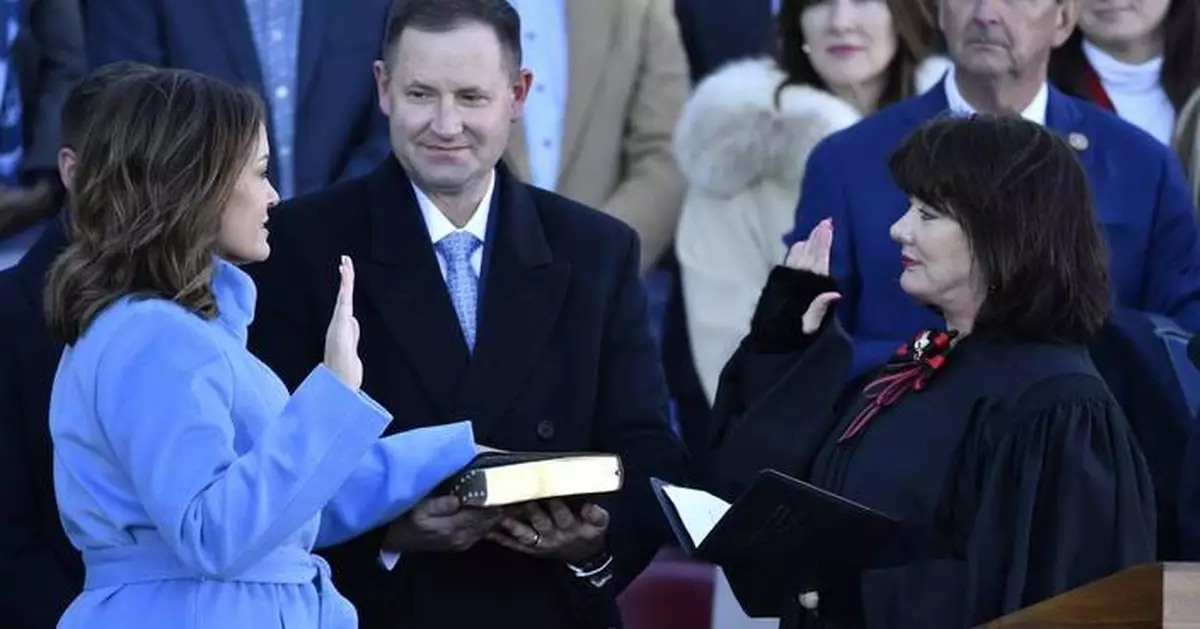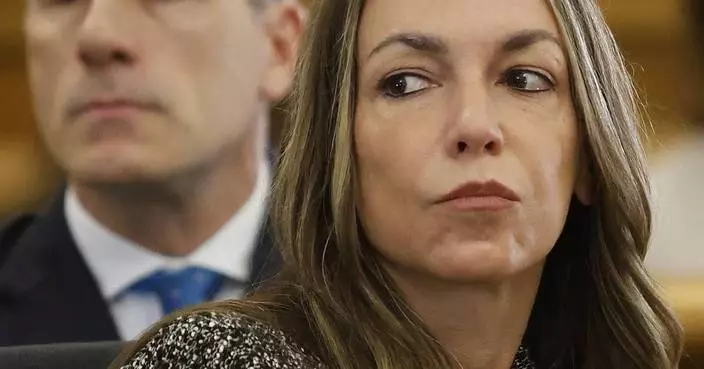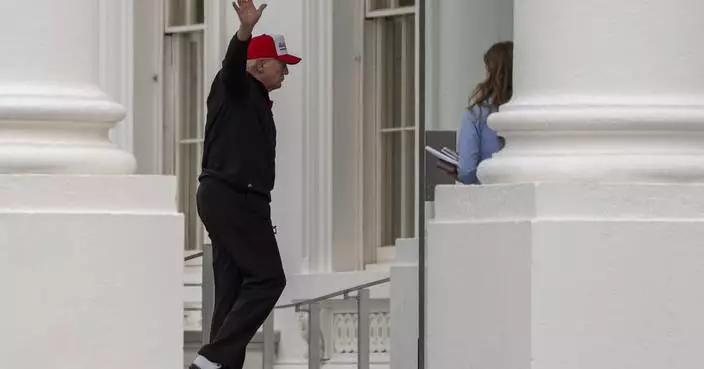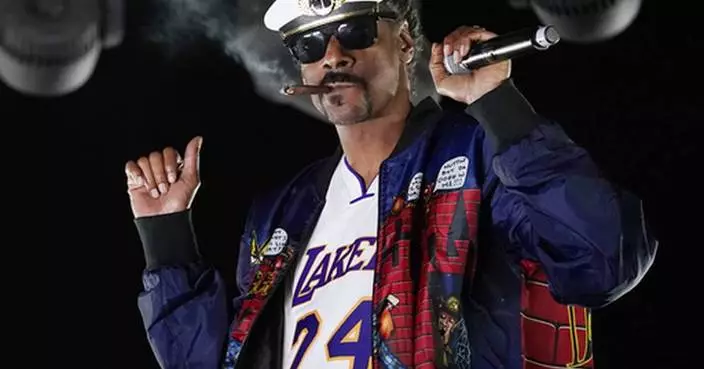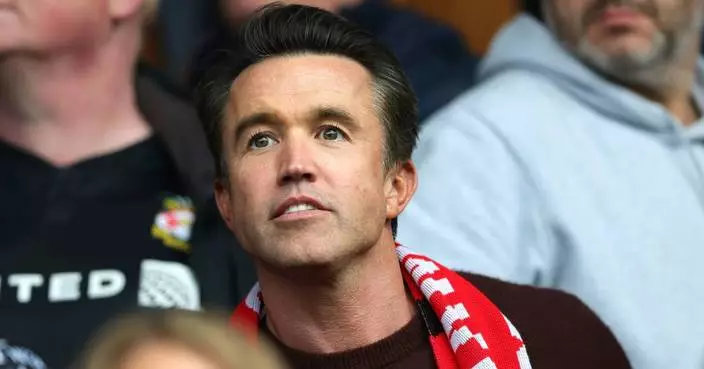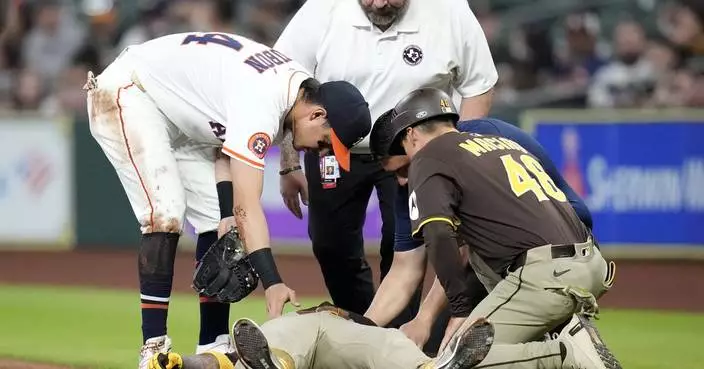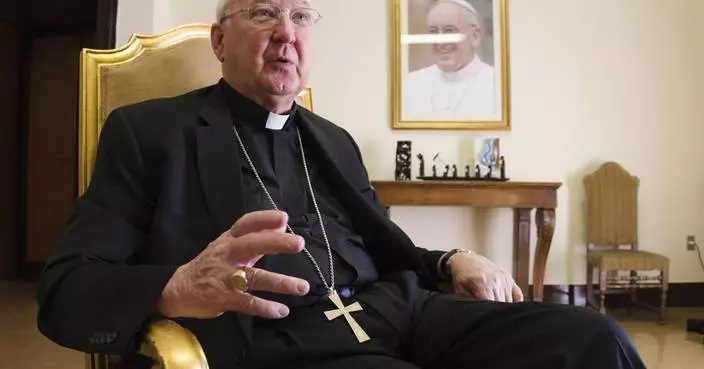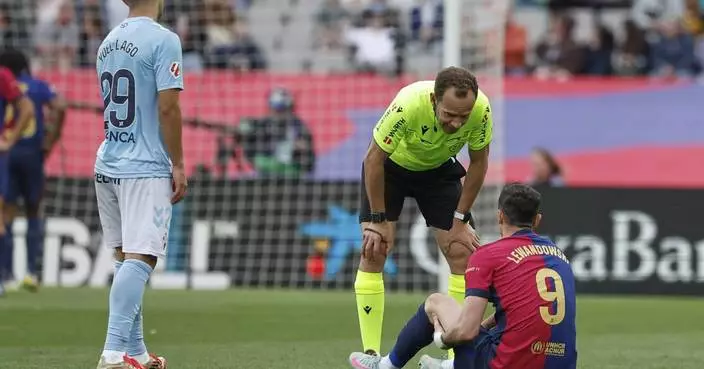FRANKFORT, Ky. (AP) — Kentucky's first female chief justice said Tuesday that she's “never given much thought to gender,” an outlook she attributed in part to her upbringing when she worked at her father's auto shop.
“I don’t think you can expect good or bad decisions that I might make as chief (justice) to be either clouded or enhanced by my double X chromosomes,” said Chief Justice Debra Hembree Lambert. "They will simply be either good or bad decisions — and carefully made.”
Lambert was chosen by her colleagues on the state Supreme Court last year to succeed Laurance VanMeter as chief justice after he opted not to seek reelection in 2024. Her Appalachian upbringing also forged her commitment to fairness and for everyone to have a voice, she said Tuesday.
Lambert also said that it's “especially nice” to be part of the first female majority on Kentucky's Supreme Court. Kentucky's top leaders marked both milestones during a ceremony in the Supreme Court chambers. The event initially was set for January but a winter storm forced its rescheduling.
The contest last year to fill VanMeter's seat led to another milestone achievement, when Pamela R. Goodwine became the first Black woman elected to Kentucky's highest court. And she became the fourth woman on the seven-member court. A similar ceremony recognizing Goodwine's election is set for Friday. Both Lambert and Goodwine have already assumed their new roles.
Goodwine said Tuesday that she's inspired by Lambert’s example as a trailblazer in the judiciary.
“Your leadership is a tribute to the progress we continue to make in building a judiciary that reflects the diversity and strength of our society,” Goodwine said.
When it was her turn to talk, Lambert said becoming the first woman chief justice “I suppose is notable.”
“Truthfully, I’ve never given much thought to gender," Lambert said. "And perhaps that attitude came from where I was raised – the mountains of eastern Kentucky.”
That included the life lessons she learned while working at her father's auto body shop, including the time she had to replace the brake shoes in her car. Lambert said she told her dad she needed his help, having never done the task before. He responded by telling her to watch closely how she removed the old brake shoes and to put the new ones on the same way, she said.
As chief justice, Lambert said she'll be guided by her parents’ philosophy to work hard, be joyful and fearless. She said her passion for people and justice developed during her Appalachian upbringing.
“When you grow up so modestly, you develop a strong sense of a need for a level playing field and for everyone to be heard," she said. "Those concepts are foundational in my worldview, and I hope you will be satisfied with my work performed as chief justice.”
Supreme Court Justice Michelle M. Keller said Tuesday that the court's process of interpreting and applying the rule of law hasn't changed now that women are the court's majority.
“Because first and foremost, the four women on this court are judges and lawyers,” Keller said. "And that’s what we bring to this job. All seven of us bring that to this job. We all bring our personal experiences and our personal backgrounds.”
Kentucky's Democratic governor and the Republican leaders of the state House and Senate spoke about the historic milestones on the state's highest court.
Gov. Andy Beshear said the court holds a “special responsibility” of upholding the law and sometimes defining it — “and to do so without bias or favor to any person or to any party.”
The state's Supreme Court justices are elected in nonpartisan contests and, as a result, their job “is to move our commonwealth not to the left or to the right but forward for all of our citizens," said Beshear, who is seen as a potential candidate for president in 2028.
“Our high court justices and the many people who support their important work make up the backbone of our democracy — the rule of law," the governor said. "This is the foundation of a functional system of government. One that’s designed to serve the people and not merely the powerful.”
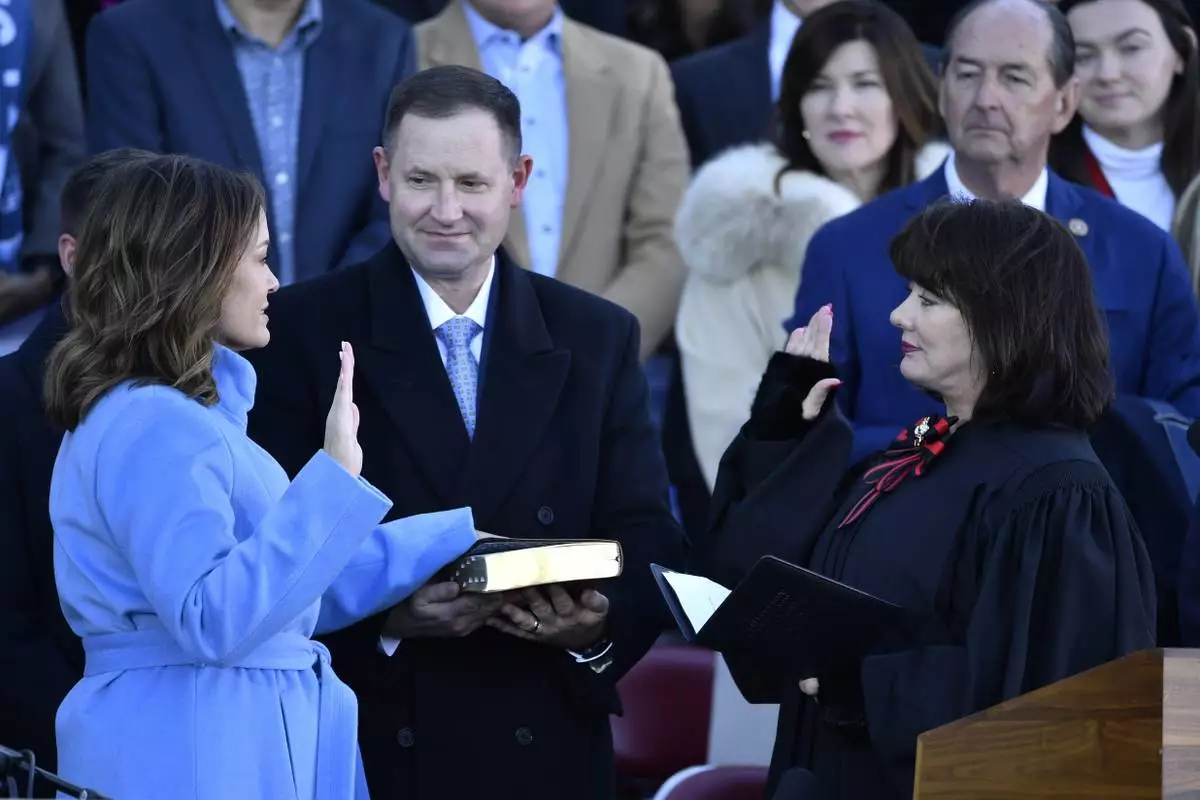
FILE - Kentucky Supreme Court Justice Debra Hembree Lambert, right, gives the oath of office to Ky. Lt. Governor Jacqueline Coleman as her husband Chris O'Bryan holds the Bible during her public swearing-in ceremony on the steps of the Kentucky State Capitol in Frankfort, Ky., Dec. 12, 2023. (AP Photo/Timothy D. Easley, File)
DEDHAM, Mass. (AP) — The second murder trial of Karen Read, whose case has sparked a national debate on police accountability and won her legions of devoted fans, will begin Tuesday with both sides laying out conflicting theories of how her Boston police officer boyfriend ended up dead.
Read is accused of striking John O’Keefe with her SUV in 2022 and leaving him to die alone in the snow outside of a house party in the town of Canton, a suburb about 20 miles (32 kilometers) south of Boston. She has been charged with second-degree murder, manslaughter while operating a vehicle under the influence and leaving the scene.
During the first trial last year, prosecutors said Read intentionally backed into O'Keefe after she dropped him off at a house party and returned hours later to find him dead. The defense said she was a victim of a vast police conspiracy and that O'Keefe was fatally beaten by another law enforcement officer at the party.
A mistrial was declared last year after jurors said they were at an impasse and deliberating further would be futile.
After the trial, the defense unsuccessfully moved to have two of the charges dismissed after they said several jurors came forward to say the group was unanimous in finding Read not guilty of second-degree murder and leaving the scene. The U.S. Supreme Court denied a request from Read to delay her trial on double jeopardy grounds.
A few dozen of Read's supporters, many holding American flags, stood in front of the courthouse Tuesday morning before moving a block away to comply with a court-ordered buffer zone. Those who were reuniting hugged each other, while others took time to bring newcomers up to speed on the case.
“I'm here for justice,” said Ashlyn Wade, a Read supporter from Canton. “The murderer going to jail and Karen being exonerated, that would be justice.”
Many of the factors that made the first trial must-see television will be featured in the second.
Many of the same witnesses are back as are Read's aggressive defense team and dozens of her supporters camped out near the courthouse — many carrying “Free Karen Read” signs and wearing pink. Read, who has been featured in several documentaries about her case, has become a minor celebrity.
The biggest difference will be the lead prosecutor, Hank Brennan. Brought in as a special prosecutor after the mistrial, the former defense attorney has represented a number of prominent clients, including notorious Boston gangster James “Whitey” Bulger.
Brennan stands to benefit from a pretrial ruling from Judge Beverly Cannone that defense attorneys can’t mention potential third-party culprits in their opening statements. They can develop a case against two law enforcement officers but cannot implicate Albert’s nephew, Colin Albert, as they did in the first trial.
“I view it as a blow to the defense strategy but not a knockout punch,” Daniel Medwed, a law professor at Northeastern University, said of the ruling. “All the defense needs to do is create reasonable doubt about Karen (Read's) guilt, and that doesn’t require pointing to an alternative perpetrator as a matter of law.”
Legal experts expect prosecutors to focus on Read's behavior as they did during the first trial — her volatile relationship with O'Keefe and their night of heavy drinking. They also predict the prosecution will lay out a stronger and more coherent case that Read clipped O'Keefe with the back of her SUV and sent him tumbling to the ground — using data from her car, video and stronger expert testimony.
“The Commonwealth will focus on the theme drilled into us since middle school — Drinking, Driving, Deadly Consequences,” Michael Coyne, the dean of Massachusetts School of Law at Andover, said in an email, adding that he expects prosecutors to avoid mistakes of the first trial, where several of their early witnesses appeared to help the defense more than the state.
The defense is expected to offer evidence that what they see as a sloppy police investigation was biased and that law enforcement officers set Read up to protect the real killers. They could be helped by an audit of the Canton Police Department released last month that found several mistakes with the investigation — although no evidence of a cover-up.
One of the key witnesses will be former State Trooper Michael Proctor. He led the investigation but has since been fired after a disciplinary board found that he sent sexist and crude texts about Read to his family and colleagues.
“Michael Proctor and his dismissal from the force may very well serve as the elephant in the courtroom throughout the proceedings," Medwed said.
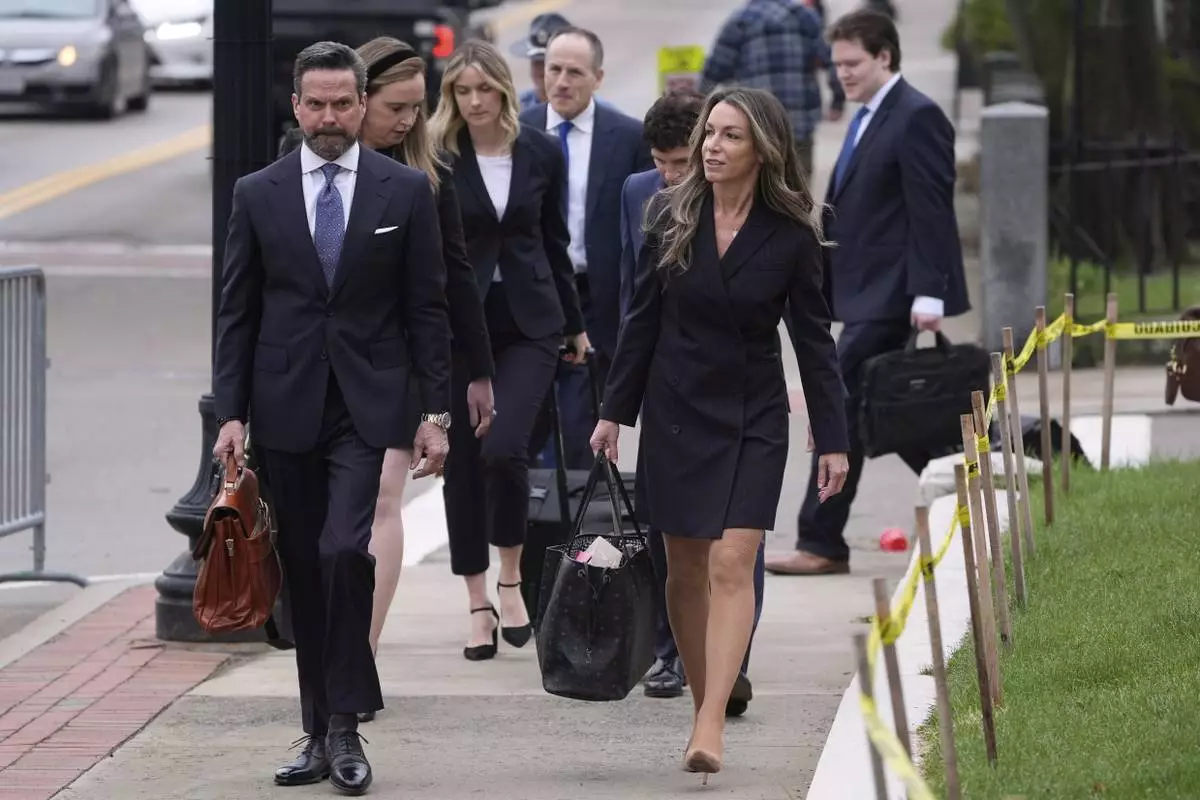
Karen Read arrives with her defense team for her trial at Norfolk Superior Court, Tuesday, April 22, 2025, in Dedham, Mass. (AP Photo/Charles Krupa)

Supporters of Karen Read gather on the steps at Norfolk Superior Court prior to Read's trial, Tuesday, April 22, 2025, in Dedham, Mass. (AP Photo/Charles Krupa)
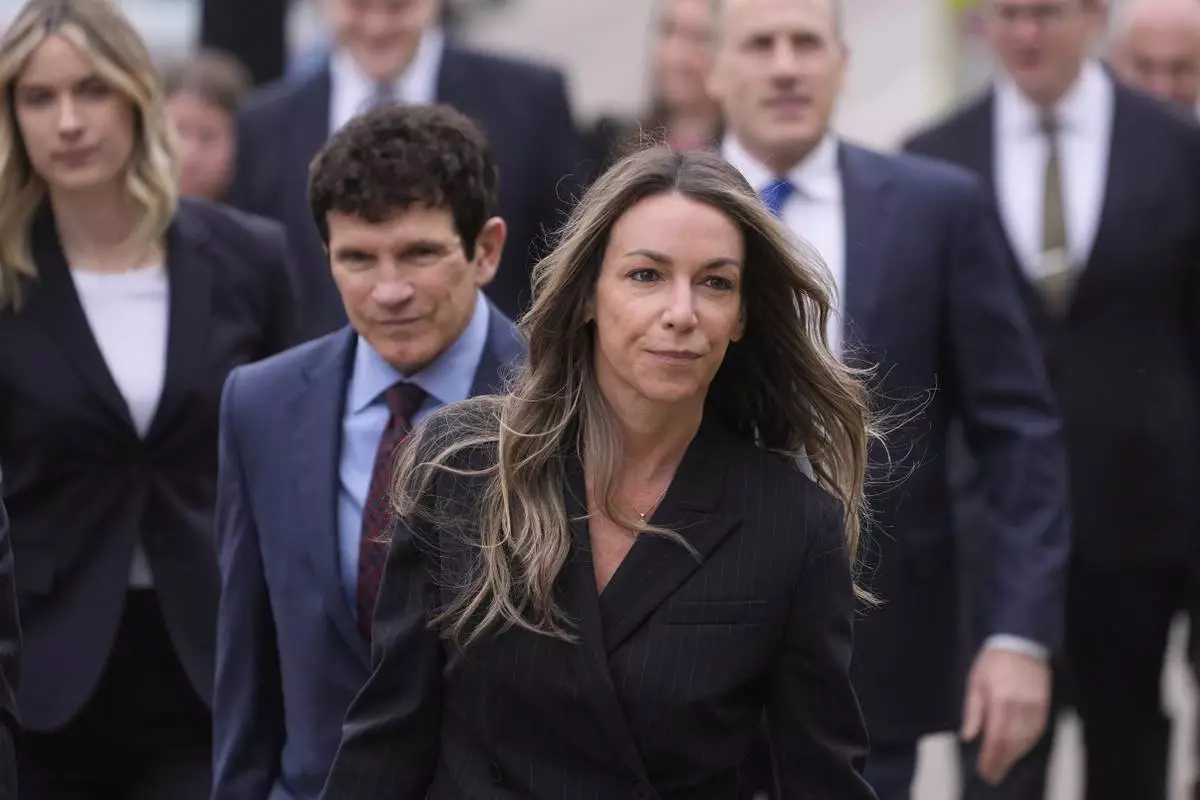
Karen Read arrives with her defense team for her trial at Norfolk Superior Court, Tuesday, April 22, 2025, in Dedham, Mass. (AP Photo/Charles Krupa)



